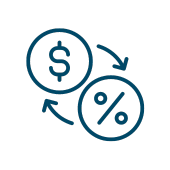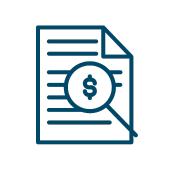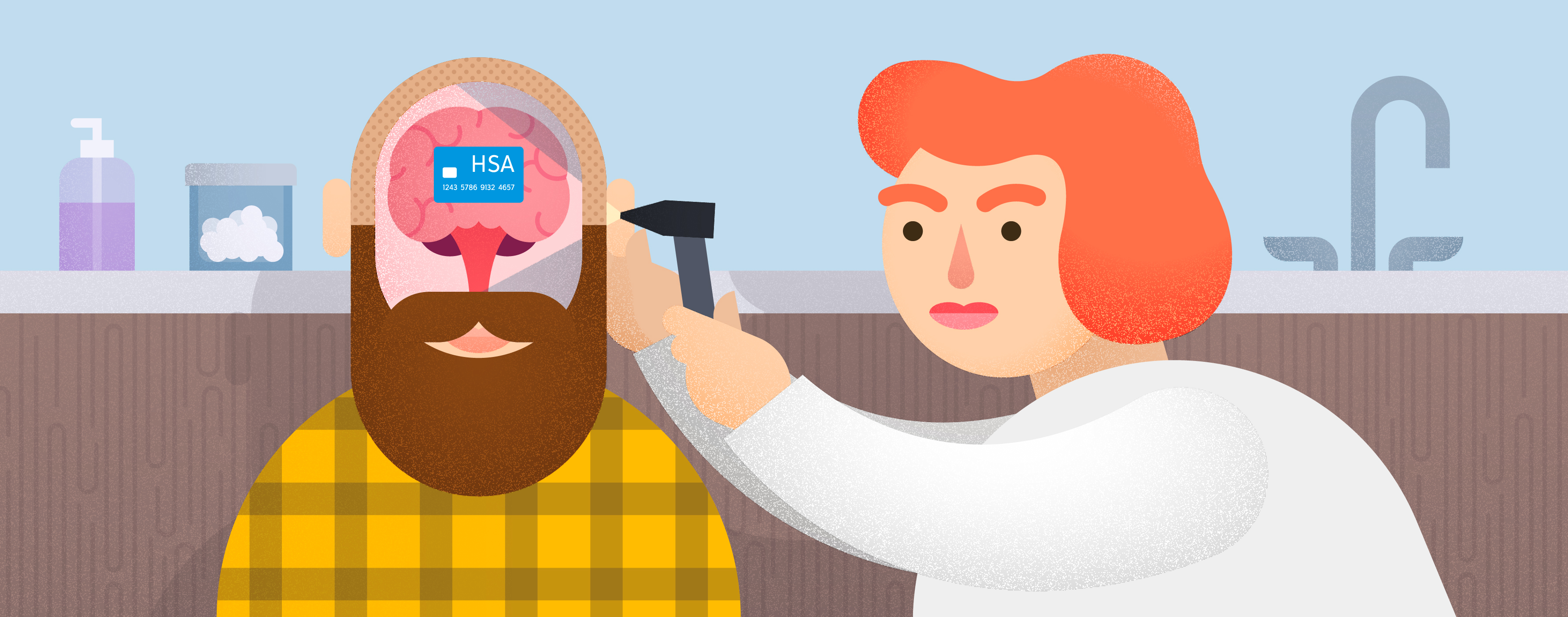Take care of your physical and financial health with an HSA
Key Features
-
 Higher balances earn higher rates
Higher balances earn higher rates
-
 Tax benefits
Tax benefits
-
 Withdraw funds at any time
Withdraw funds at any time
A Health Savings Account, or HSA, is a great way to save for a variety of qualified medical expenses. These expenses may include co-pays, prescriptions, vision and dental expenses, over-the-counter medications, and numerous other healthcare expenses.
Plus, whether you’re contributing to an HSA account from your paycheck before taxes or from your take-home pay, you won’t pay income tax— and, any dividends your HSA earns or any withdrawals you make are tax free.
You must be covered by a high deductible health plan (HDHP) to be eligible for and to take advantage of this account type.
{openTab}
Core Benefits
Tax Benefits
Save for qualified medical expenses tax-free! Plus, dividends and withdrawals are also tax free.
Additional Benefits
|
Best if you... |
Are covered by a High-Deductible Health Plan (HDHP) or want to save for qualified medical expenses tax-free |
|
Monthly Fee |
$3, waived when $2,000 monthly balance requirement is met; $20 one-time initial setup fee |
|
Minimum Opening Deposit |
None |
|
Minimum Balance Requirement |
None ($3 monthly fee waived if $2,000 monthly balance requirement is met) |
|
Deposit & Withdrawal Limitations |
Withdrawals can be made with a debit card at point-of-sale or ATM or by check |
|
Dividends Compounded |
Monthly |
{openTab}
|
Account Balance |
Rate |
APY |
|
0.05% |
0.05% |
|
|
$0 - $499.99 |
0.00% |
0.00% |
|
$500 - $2,499.99 |
0.05% |
0.05% |
|
$2,500 - $4,999.99 |
0.10% |
0.10% |
|
$5,000 - $14,999.99 |
0.20% |
0.20% |
|
$15,000+ |
0.25% |
0.25% |
APY is Annual Percentage Yield.
What’s the difference between Rate and APY?
{openTab}
Can I use the money in my account to pay medical insurance premiums?
Generally, you cannot use your Health Savings Account to pay premiums for health insurance coverage. Exceptions include COBRA premiums, long-term care premiums or premium payments that allow you to retain coverage while receiving unemployment compensation.
What is a qualified medical expense?
Qualified medical expenses are services typically covered by a health care plan, such as office visits, emergency room services and hospitalization. Also, prescription drugs, vision expenses including eyeglasses and contact lenses, medical plan deductibles and co-pays, as well as noncosmetic dental expenses. Visit the IRS's website for more information.
How do I access my Health Savings Account funds?
Using your funds is simple. You’ll receive a debit card that can be used anywhere Mastercard is accepted. Checks are also available upon request.
Can I use my debit card to obtain cash?
Yes. Your debit card will work at any ATM. You can also use your debit card to obtain cash from a teller.
My doctor doesn’t accept Mastercard. How do I pay?
Pay your doctor with a check or cash from your personal checking or savings account, and then reimburse yourself from your Health Savings Account in cash.
Are there any forms I must complete to be reimbursed for medical expenses?
No. You pay your medical expenses with your debit card, or by writing a check if you have chosen that option.
What happens if I don’t spend all of my funds in my account by the end of the year?
Unused Health Savings account funds rollover from year to year.
Is there a minimum amount I can contribute to my Health Savings Account?
FCCU requires NO minimum contribution to your HSA, however there is a yearly maximum.
Who can contribute to my Health Savings Account?
Contributions can be made by your employer, the employee, or both. Family members may also make contributions for any eligible family member covered under a high-deductible health plan.
Are there any tax forms I must prepare at year-end?
Yes. Like IRAs, each January you’ll be sent a 1099 Form for any distributions made from your Health Savings Account during the calendar year. If the contributions were made by you or your employer through an employer plan, those contributions will be reported on your W-2 issued by your employer.
What happens if I am no longer participating in a high-deductible health plan?
You may continue to spend any remaining funds in your account for qualified medical expenses. However, you may no longer contribute to this account.
What if I use my Health Savings Account to pay for non-qualified medical expenses?
You will need to include that amount in your gross income when you file your taxes. It will be treated as regular income, and if you are less than 65, it will be subject to a 10% excise tax.
In the event of my death, what happens to my Health Savings Account funds?
In case of death, remaining funds are forwarded to your designated beneficiary or beneficiaries named on your Health Savings Account enrollment form.
Consult a tax advisor. For a list of fees, see our HSA Fee Schedule.







